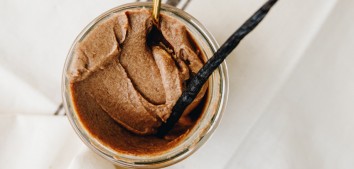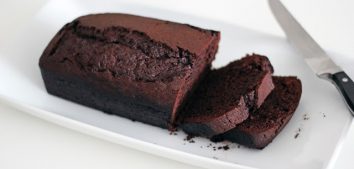
What to Eat After Workout?
In spite of the large amount of information on training-related nutrition, it is still a very popular topic. It is mostly because more and more people lead a healthy lifestyle! And that of course is a huge advantage for us all since there is a healthy mind in a healthy body! The meals you eat affect your health, in both physical and mental aspect. So far, I have discussed the general issues of training-related nutrition HERE. On the blog you will find many recipes for healthy, wholesome meals. You already know a lot about pre-workout nutrition (HERE), so it’s time to explore the role of a meal after exercise. Is it as important as they say?
I would like to discuss it especially considering physical activity and its purpose in relation to a daily diet.
What does the body use as fuel during exercise?
If you do endurance sports such as jogging, cycling, or moderate-intensity swimming, your body quickly shifts from using muscle glycogen only to “burning” fat.
More demanding endurance training, such as tabata or weightlifting, depletes muscle glycogen reserves much faster – it is the main fuel for working muscles, which is the glucose reservoir in the liver and muscle tissue.
After all, the extent to which your body will use up energy depends largely on the degree of training. The rule is simple: the more trained you are, the later your glycogen stores – the energy stored in muscle tissue – will run out. So the basis is a well-balanced, all-day supply of energy and micro- and macronutrients.
What do research studies say?
For a very long time, most people, especially those who do strength training, followed the principle of fast protein replenishment after a training session due to the occurrence of the so-called “anabolic window”. It is defined as the short time after exercise, when the body has increased regenerative capacity, tissues are more sensitive to insulin or amino acids. Therefore, after training, you had to quickly eat a meal which consisted mainly of easily digestible protein and carbohydrates.
We now know that the amount of time between the workout and the first meal afterwards can be much longer than previously thought. Various studies conducted so far suggest that the possibility of synthesizing (building) muscle tissue after training may last up to 24 hours. In contrast, the recuperation (recovery) of muscle glycogen takes up to 72 hours. This shows that the first meal we have after exercise is not the only thing that has an impact on the training effects and the composition of our body.
There is no evidence that a meal after exercise is more important than the one before or at any other time of the day.
I would like you to pay attention to how you distribute your meals throughout the day, so that the break between the meal you have before exercise and the one you have afterwards should not last longer than 4 to 6 hours.
or people who don’t work out on a regular basis but only practice recreational physical activity, which probably most of you do, the so-called post-workout protein and carbohydrate timing is no more important than the issue of an overall well-balanced diet. In other words, if you do physical activity 3 to 5 times a week, e.g. by exercising with me using Diet&Training by Ann app, the most important thing is to focus on a healthy diet. Sport itself, without rational nutrition, will not bring positive results. The same thing happens if you have e.g. a protein-carbohydrate shake after training, but for the rest of the day your diet is far from well-balanced.
Protein
If your training is to improve body composition, protein should be an essential part of your post-exercise meal. There is no clear information on how much of it you should consume. It is also influenced by the amount and quality of protein eaten before exercise. As a general rule, a value of about 20 to 25 grams of protein is optimal after workout. After very hard, intense training, this amount can go up to about 40g of protein. Everything depends on physiology. Again, the principle of the degree of your fitness applies here. If you are just starting your adventure with training, providing about 20 g of protein will be the optimal value that the body will absorb. With higher consumption, the protein will probably be used simply for the body’s energy needs, or stored as adipose tissue (with an excess of calories during the day), and not for the synthesis and regeneration of muscle tissue. Of course, as I wrote earlier, the most important thing is the overall supply of protein in your diet, as well as the time between meals before and after exercise. However, you should preferably plan protein consumption before or after training.
What if your diet does not contain meat, fish or dairy products? I have an alternative for you in the form of vegan protein. Plant sources of protein are a very good form of supplementing your diet with valuable proteins, especially when you are physically active, and the limited range of products that can be used makes it difficult to meet the demand for protein. Just add it to your daily smoothie, breakfast porridge or pancakes for dinner.
Carbohydrates
How soon after training you should have a carbohydrate meal largely depends on when you plan to do your next training unit and whether you include the right amount of carbohydrate in the meals on a given day.
If you work out once a day, you don’t need to have a meal immediately after you’ve finished physical activity. However, stick to the rule that the break between your last meal and the workout should not exceed 4 to 6 hours.
When you do an endurance sport and it is not a spontaneous activity, but a regular workout, then it is worth consulting your diet and carbohydrate supply with a dietitian.
If the main type of physical activity is strength training or bodyweight exercise, research shows that it is not necessary to eat simple carbohydrates, such as a banana, in a short time after training, if you do not plan a second training unit on the same day. However, if you do strength training in the morning and go cycling or jogging in the afternoon, carbohydrates should be included in the meal after the first workout.
However, not all carbohydrates are created equal… What matters here is the glycemic index (GI), which is an indicator of how quickly the level of glucose in the blood rises after eating carbohydrates. When you train more than once a day, your post-workout meal should be high in carbohydrates (high and medium GI simple sugars) to replenish your body’s energy reserves. Almost all vegetables, coarse-grain groats such as buckwheat, pearl barley, brown rice and wild, whole-grain bread belong to this group.
When you do one workout and your main goal is weight loss, the carbohydrates in your post-exercise meal should have low to moderate glycemic index. The situation is similar when we have a minimum of 24 hours until the next training session.
Fats
Including healthy sources of fat in a post-workout meal is a good solution, but there are no recommendations as to the optimal amount in this case. The rule that you should follow is that fats complement the meal. In practice, if you are preparing a smoothie made of banana, skim milk (vegetable or animal), and protein powder, you can add valuable fats in the form of avocado, linseed oil or peanut butter. When your post-workout meal is, for example, a sandwich with smoked mackerel and vegetables, an additional source of fat is no longer advisable.
What happens when you run out of energy for working muscles?
Nobody who plays sports wants to lose muscle mass, on the contrary – some want to build it or at least maintain it at a relatively constant level.
Both during the period of fat reduction (weight loss) and during the building of muscle mass, the key fact for you should be the information that when glycogen reserves or glucose circulating in the blood are exhausted (the fastest available source of energy for tissues), the body is unable to carry out the lipolysis process (breakdown of fat into fatty acids and glycerol, which, reaching the bloodstream, are a source of energy for the working organs). Unfavorable processes of “burning” of your own proteins for energy purposes occur, e.g. from muscle tissue.
What to eat and when if your goal is to reduce body fat and overall body weight?
As I wrote earlier, the basis is a balanced, healthy diet, in this case with a negative energy balance. Meals should provide fewer calories than your body needs. Here I want to come back to the role of the pre-workout meal for a moment. Don’t skip it! It will make you feel good and strong during the training session. If you did your training in the morning after breakfast and your next meal is typically lunch, wait for it. Make sure it becomes a fully nutritious dish, with 20-25 g of wholesome protein (lean meat, fish, eggs) and complex carbohydrates (such as buckwheat or quinoa) with the addition of vegetables or fruit and a small amount of balanced fats (linseed oil, sesame, avocado). If you didn’t manage to have a pre-workout meal, having a post-workout meal in a short period of time will be much more important. The protein shake with fruit I mentioned before is a good idea.
Conclusions
There is no gold standard both for a post-workout meal and for nutrition in general. However, what we know at the moment and what I encourage you to do is that we should provide the right amount of carbohydrates and protein in the post-workout meal. It is a myth that you shouldn’t include fat in your post-workout meal. Of course, it all depends on your body’s tolerance, but studies show that the addition of fat doesn’t adversely affect the restoration of the fuel for muscles, which is glycogen. Focus on healthy nutrition which takes into account the increased needs of your body caused by physical activity. If you are able to plan your training units in the long term including the time of day, try to make sure that the pre- and post-workout meals meet the principles I wrote about above or in my previous posts.
You can find lots of ideas for post-workout meals HERE ?
Bibliography
- Eliot TA et al. Milk ingestion stimulates net muscle protein synthesis following resistance exercise. Med Sci Sport Exerc. 2006; 38(4)667-674
- Hoffman JR et al., Effect of protein-supplement timing on strength, power, and body-composition changes in resistance-trained men. Int J Sport Nutr Exerc Metab. 2009; 19(2):172-185
- Schoenfeld B, Aragon AA. Is There a Post Workout Anabolic Window of Opportunity for Nutrient Consumption? Clearing up Controversies. J Orthop Sports Phys Ther. 2018; 48(12):911-914
- Schoenfeld et al., Pre- versus post-exercise protein intake has similar effects on muscular adaptations. PeerJ. 2017:5










Comments No Comments
Join the discussion…